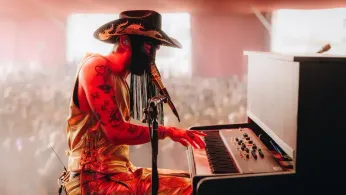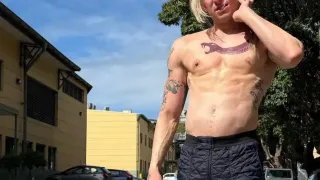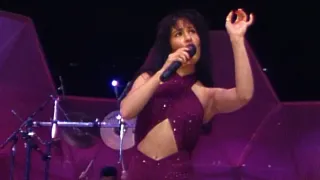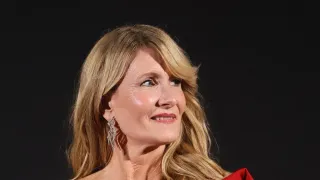
3 hours ago
Orville Peck Unmasked: Sexiness, Stardom, and a Banner Year for Queer Country
READ TIME: 19 MIN.
If 2025 had a cowboy-in-residence, it would be Orville Peck—masked, magnetic, and utterly unmissable. This year, the South African-born, openly gay singer-songwriter has reached new heights, not just by breaking down barriers, but by dancing right through them, rhinestones and all. In an industry where country music’s doors have often seemed closed to queer artists, Peck is holding them wide open, inviting the whole community inside and throwing one hell of a party while he’s at it .
For Peck, this year has been less a career chapter and more a full-blown saga. After a show-stopping stint in the Broadway revival of "Cabaret", he stunned fans by landing a major role as Vega in the highly anticipated "Street Fighter" film adaptation, set to debut next October. “It was incredible! I got to play a character from a video game that I grew up playing as a little kid. I got to learn martial arts for six months. It was one of the best experiences of my life!” Peck shared, his signature enthusiasm as bright as ever .
This leap from stage to screen isn’t just a testament to Peck’s versatility—it’s a beacon for queer creatives everywhere. For so long, queer performers have been told to pick a lane, to shrink their dreams to fit a mold. Peck’s refusal to dim his light or dilute his identity is galvanizing, especially for LGBTQ+ fans who grew up longing to see themselves as both heroes and heartthrobs.
Vega, famously masked and flamboyant, is a role that plays right into Peck’s strengths. “All of his fighting is flamenco, so I get to lean on my theatricality and dancing background. I got to explore a lot of other parts of myself that I trained for many years!” he explained, highlighting how queerness and performance are not just compatible but inseparable in his artistry .
Yet, even with Hollywood knocking, music remains Peck’s true home. His latest EP, "Appaloosa", drops listeners straight into his creative heartland. “Fans are getting a miraculous seven songs that I was able to achieve in that schedule! It’s way more than I thought I was going to do, so I’m really proud to have new music out. This EP is a return to my creative roots. It’s so wonderful that people are excited and invested,” Peck told Pride.com .
"Appaloosa" is more than just a collection of songs—it’s a love letter to queer resilience and self-acceptance. Peck’s journey, from making his debut album “with $300 in my pocket” to commanding festival stages and international headlines, is a testament to what happens when queer artists are given room to breathe, create, and shine .
Perhaps what’s most revolutionary about Peck’s current era is the open embrace of his own sexiness and confidence. In a culture where queer men, especially those in traditionally “masculine” genres like country, have often been asked to downplay their allure or authenticity, Peck is doing the opposite.
“What I have truly learned in my life as a person and as an artist is that the more I lean into my authentic self, the more I lean into not apologizing for who I am, the more I truly value myself... the better my life becomes both career-wise and relationship-wise. Everything in my life seems to improve the more I invest in myself and believe in myself,” he said, offering a mantra that feels tailor-made for every LGBTQ+ person navigating a world that still demands compromise .
The internet has noticed, too. Peck’s social media is ablaze with steamy training montages and behind-the-scenes glimpses—visual proof that queer sexiness isn’t a punchline, but a point of pride. The comments section? A digital chorus of thirsty, empowered fans who see themselves reflected in every confident pose.
Peck’s influence isn’t just personal—it’s seismic. In interviews, he’s been clear about the importance of true allyship, not just the “bare minimum” of acceptance. “Being accepting of queer people, that’s the bare minimum. That should just be. People should be accepting of everyone. That isn’t allyship. Allyship is being vocally in support and standing next to us, especially in a time like now, when we need it so much,” he told Pride Source .
His collaborations—like working with country legend Willie Nelson—aren’t just career milestones. They’re cultural statements, reminders that queer artists belong at the center of America’s stories, not on the margins. “There isn’t a single country music fan that doesn’t like Willie Nelson... for him, more than all of these other people, to stand up and do this, I think it can give people a lot of comfort and reassurance that there are people out there that stand with us and are with us,” Peck reflected, drawing a direct line between allyship and hope for queer youth .
Peck’s shows, whether during Pride season or on a random Tuesday night, feel like miniature Pride festivals—spaces where queer joy is the main act and everyone’s welcome to the afterparty. “I think my show is already filled with pride and a lot of queer joy. Whether it’s a Pride show or not, I go up there and my main focus is just to be myself, to connect with the audience and to tell my stories,” he explained, emphasizing that queer visibility isn’t a seasonal affair, but a daily celebration .
For LGBTQ+ fans, this matters deeply. Peck’s message—“You already are loved and there are people out there that will love you for exactly who you are”—lands with particular resonance in a year where anti-queer rhetoric and legislation remain urgent threats in many places . His visibility is a reminder that queer pride is a force that can’t be legislated away or locked out of any genre.
As 2025 barrels forward, Orville Peck is more visible—and more vital—than ever. Each new project is a high-kick to conformity, a love letter to queer community, and a challenge to every gatekeeper still clinging to outdated ideas of who gets to tell America’s stories. The masked cowboy may still keep some secrets, but his message couldn’t be more clear: “This can also be my culture, and I can make it my culture, and I can be a part of it. I think it’s really cool that so many artists are claiming their place in it because it is truly the most diverse American genre, and it is for everybody. It should represent how diverse its roots are. It should be representative in how the genre looks today. And I think it’s finally catching up” .
So here’s to Orville Peck unmasked, unstoppable, and riding high for all of us.






